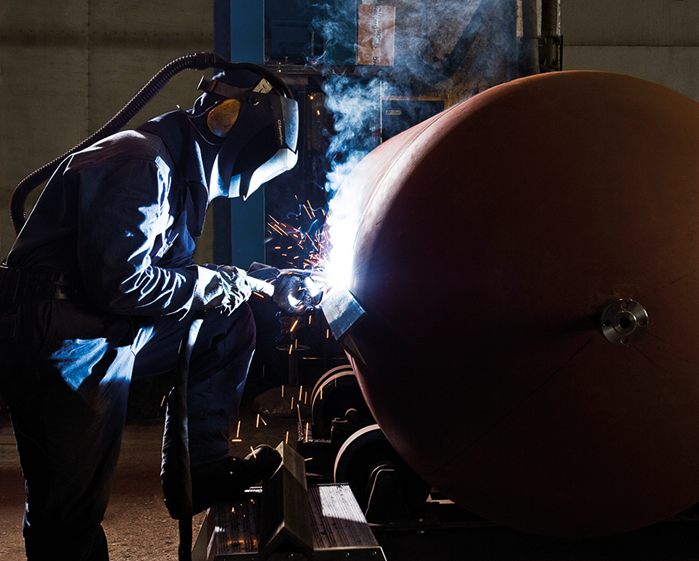Unlocking Opportunities with Kiwa: Personal Certification for Welders, Welding Operators, and Brazers
Certified workers are important for safety and following rules in industries with pressure equipment and steel structures. At Kiwa, we specialize in personal certification for welders, welding operators, machine setters, and brazers. We offer certifications that follow global standards. They show people's skills and give companies confidence in hiring experts. In this article, we will delve into the certification process, the standards we follow, and the benefits of choosing Kiwa for your personal certification needs.
Personal Certifications in Welding: Setting the Standard
When it comes to personal certifications in welding, Kiwa is committed to upholding the highest standards. We specialize in a wide range of certifications that cover various welding disciplines, including steel, aluminum, copper, nickel, titanium, and zirconium. Additionally, we offer certifications for fully mechanized welding, machine setters for automated welding, and even specialized certifications for welding rails and rail components, as well as testing of brazers and brazing operators in line with ISO 13585.
As a trusted Notified Body (NoBo) operating under the esteemed Pressure Equipment Directive (PED), our accreditation extends across multiple European countries. Our role as an independent third-party organization, endorsed by Member States, is to rigorously evaluate people products to ensure they meet the specific standards required for a specific market. This designation empowers us to provide personnel certification services to clients throughout Europe. In this way strict adherence to regional regulations can be ensured and a culture of safety and quality can be fostered.
With our expertise and commitment to excellence, we are here to support you in reaching new heights of professional success while maintaining the utmost safety and quality standards in the industry.
The Certification Process in Welding: Your Path to Success
Unlocking professional opportunities and demonstrating expertise is within your reach through the certification process. From application to testing and certificate issuance, Kiwa provides a clear path to personal certification success. Discover how Kiwa can propel your career forward.
- Applying for Certification: The first step toward obtaining a personal certification is submitting an application. The applicant easily provides all the necessary information, including the desired standard, certificate type, and test details. By signing the application, the applicant confirms agreement with the certification rules.
- Testing and Inspection: Prior to the test, our inspector reviews the manufacturing instructions to ensure compliance with applicable requirements. The test pieces are labelled for traceability, and the inspector oversees the entire process, ensuring adherence to the current standards. Depending on the standard, knowledge tests may be conducted in conjunction with the examination.
- Testing for Certification: Once the test is completed, the inspector performs a visual inspection of the sample. If the requirements are met, the samples undergo non-destructive or destructive testing, based on the standard and type of sample.
- Failure and Retesting: In case an applicant fails to meet the standard's requirements during the initial testing or subsequent attempts, a retest can be done. However, if the second attempt is unsuccessful, the applicant must undergo additional training before booking a new certification opportunity, as prescribed in the standard.
- Certificate Issuance: Following a successful test and inspection, the certification documentation is compiled and reviewed by independent Kiwa personnel who were not involved in the testing phase. If all requirements are met, the certificates are issued to the applicants. The certificate's validity period is determined by the respective standard and the chosen certificate type. Employers usually get certificates, but applicants can ask Kiwa for their own copies since we own the certificates.
- Extension and Revalidation of Certification: Extending the validity of a certificate is possible for certain standards and certificate types. The employer can apply for revalidation, and Kiwa reviews the basis for revalidation. If the requirements are met, the certificate's validity period is extended accordingly. Note, some certificate types, such as ISO 9606-1 and ISO 14732, are non-extendable.
Managing Your Certificates with Kiwa Qualified
To simplify the management of certificates, Kiwa has developed the Kiwa Qualified customer portal. This user-friendly platform allows customers to digitally monitor and oversee their certificates. Users can access an overview of their company's certifications, receive email reminders for extensions, print certificates, and perform various other functions. Moving to Kiwa Qualified is easy, even if you have PDF certificates. We can transfer the data to the new system without problems.
Take control of your professional growth and open doors of opportunity with Kiwa's comprehensive certification process. We check carefully, follow global rules, and offer renewals to keep your certificates up-to-date and accepted. Don't wait to enhance your credentials and showcase your expertise. Begin your path to certification success by contacting Kiwa and taking the first step to open up new opportunities.
Additional information (in separate light blue block): industryassets@kiwa.com
Kiwa's qualification testing of welders
Kiwa performs personal certification of welders, welding operators, machine setters and brazers in accordance with the following standards:
- EN ISO 9606-1 Welder testing - Fusion welding - Part 1: Steel
- EN ISO 9606-2 Welder testing - Fusion welding - Part 2: Aluminium and aluminium alloys
- EN ISO 9606-3 Welder testing - Fusion welding - Part 3: Copper and copper alloys
- EN ISO 9606-4 Welder testing - Fusion welding - Part 4: Nickel and nickel alloys
- EN ISO 9606-5 Welder testing - Fusion welding - Part 5: Titanium and titanium alloys, zirconium and zirconium alloys
- EN ISO 14732 Welding personnel – Testing of operators for fully mechanized welding and machine setters for fully mechanized and automated welding of metallic materials
- TDOK 2014:0587 Welder testing - Welding of rails and rail components
- EN ISO 13585 Brazing - Testing of brazers and brazing operators
Do you want to know more?
- Check our service page about 'Certification of welders, welding operators and brazers'
- Find out more about our services for the Industry Assets sector
- If you have any questions please contact your local contact or send an email to industryassets@kiwa.com



